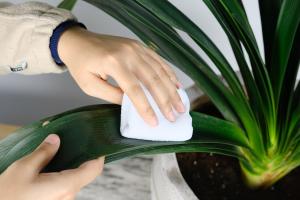When Planting Grass Seed, How Often Should You Water?
Planting grass seed can be an exciting and rewarding experience for any homeowner. It can be beneficial to the environment, enhance your lawn, and improve your property value. However, one common question that comes up during the process is the frequency of watering grass seeds. Adequate watering is crucial for the success of your grass seeds. Here's what you need to know about watering your grass seeds when planting.
The First Two Weeks
The first two weeks after planting grass seeds are crucial for their growth. During this period, you must keep the seeds consistently moist, but not overwater them. You should water the grass seeds lightly two times a day, preferably in the morning and evening to avoid excess evaporation due to heat. Many gardeners use a misting attachment on their hose to control water flow, ensuring that they don't flood the soil. If the soil appears soggy or if standing water appears on the surface, you're overwatering.
The Next Two to Four Weeks
During the next two to four weeks, the frequency of watering grass seeds should be reduced. You can reduce watering to once a day, preferably in the morning. You want to ensure that the soil remains moist without becoming too wet, which can hinder root growth. Keep an eye on the weather, and water more frequently during hotter, drier periods to avoid dehydration.
Four Weeks and Beyond
After four weeks, the grass will start to grow, and you can reduce the amount of watering. You'll only need to water once or twice a week, depending on the weather, soil, and drainage. Check the top inch of the soil with your finger. If it's dry, it's time to water. Ensure that the water reaches the grass roots by watering for a more extended period, rather than just wetting the surface. If you're unsure when to water, invest in a soil moisture meter that will show you the exact amount of moisture in the soil.
Other Watering Tips
Overwatering can smother the grass seeds, making it challenging for them to grow. However, underwatering can also be problematic for the seedlings, causing them to die. Here are some additional watering tips to consider:
Check the sprinkler system for even coverage and adjust if necessary.
Use mulch to retain moisture, reduce evaporation, and keep the soil cool.
Water early in the morning to prevent evaporation and avoid fungal diseases that can occur from overnight dampness.
Consider the weather before watering. During rainy periods, avoid saturating the soil.
Water deeply and less frequently, rather than shallowly and often, to encourage deep root growth.
The Bottom Line
When planting grass seeds, watering is one of the most critical factors that will determine their success. Follow these guidelines to ensure that you're giving your seeds the right amount of water at the right time. Remember to adjust your watering schedule based on the weather, soil, and drainage conditions. With proper watering, you'll have a beautiful and healthy lawn in no time!

 how many times do yo...
how many times do yo... how many planted tre...
how many planted tre... how many pine trees ...
how many pine trees ... how many pecan trees...
how many pecan trees... how many plants comp...
how many plants comp... how many plants can ...
how many plants can ... how many plants and ...
how many plants and ... how many pepper plan...
how many pepper plan...





























